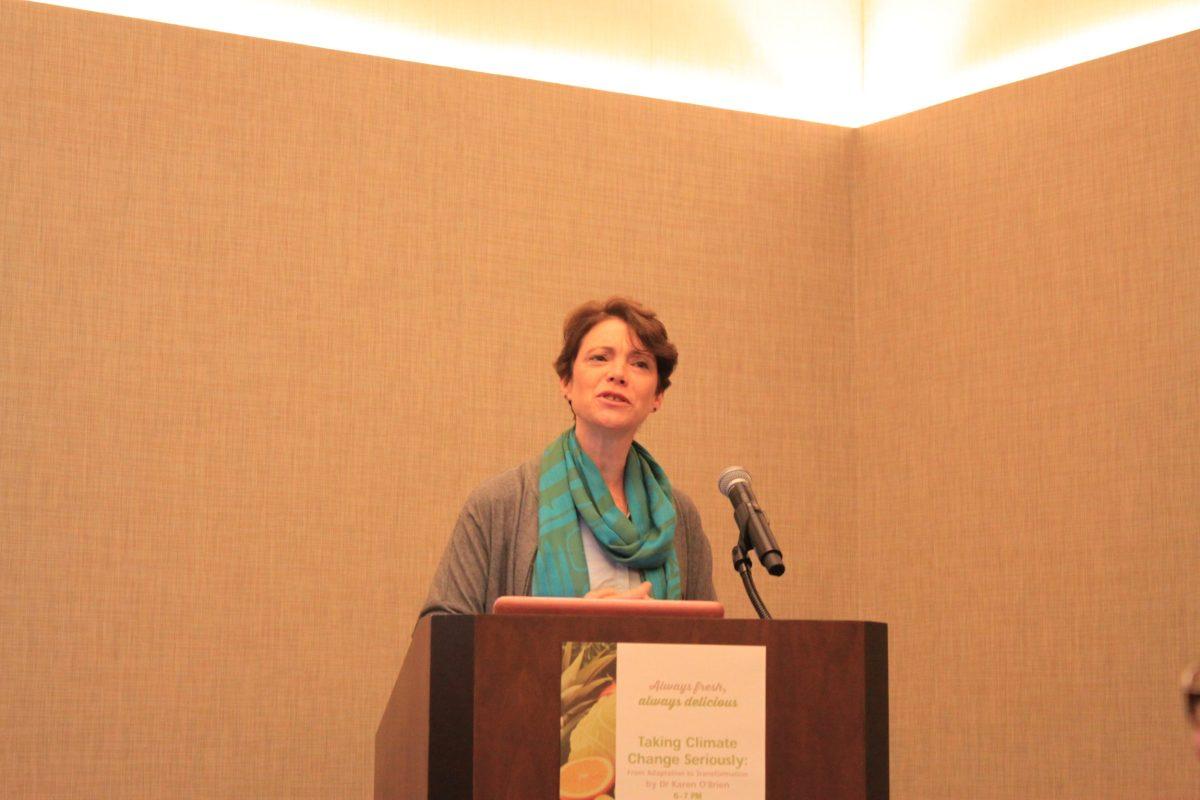“If there’s one thing that the environmental movement has not been very good at is pointing the fingers and telling people what to do and how to live,” said Dr. Karen O’Brien this past Wednesday during her talk on climate change.
O’Brien is a sociology and human geography professor at the University of Oslo, whose research explores the ways that climate change, biodiversity loss and other large-scale environmental transformations interact with other processes to worsen inequity, increase vulnerability and undermine sustainability.
“There’s a lot of climate research that really shows that we don’t see something and we believe it,” O’Brien said. “But we actually tend to see exactly what we believe rather than believing that we see.
“Not just in society but also us individuals, you want to be really open to change,” she said. “Our values are driving a lot of what we are doing, but our worldviews are also important; they give us a perspective on life.”
The idea of environmental transformation, according to O’Brien, is defined as physical and qualitative in changes in form, structure, and meaning.
These transformations rely on working together to fix the problem. O’Brian challenges the idea that we as people find credible excuses that we can’t do something to help, that it is bigger than us.
Kelsie Titus, senior environmental studies major and ResLife sustainability coordinator for Sonoma State University, was happy with the event turnout. According to Titus, she has committed herself to doing her best in educating and inspiring others to lead a more sustainable lifestyle.
“This event went hand in hand with increasing awareness on climate change and the action that humans are capable of achieving when working together and being mindful of the connection that we have with one another and the planet,” Titus said. “The farm to table reception promoted the idea of supporting local farmers, which also promotes sustainability.”
O’Brien’s outlook on us as humans is not to blame, but to acknowledge that people are the most powerful solution to climate change. With this knowledge, one small change from each one of us can and will have an effect on climate change.
“Choice makes the difference,” O’Brien said. “If you tell people how to change, then it becomes my issue and not theirs and then it’s almost imposed on you, but if you just let people make one difference it generates curiosity.”
The struggle to get people involved, especially when dealing with social norms, has weight on where people find it necessary to put their efforts.
“I have found it very challenging to get students involved in wanting to actively learn about sustainability,” Titus said. “Dr. O’Brien’s speech gave me hope that the culture on campus is shifting to want to be more green and aware of the practices that can be incorporated into everyday life in order to be more sustainable.”




































